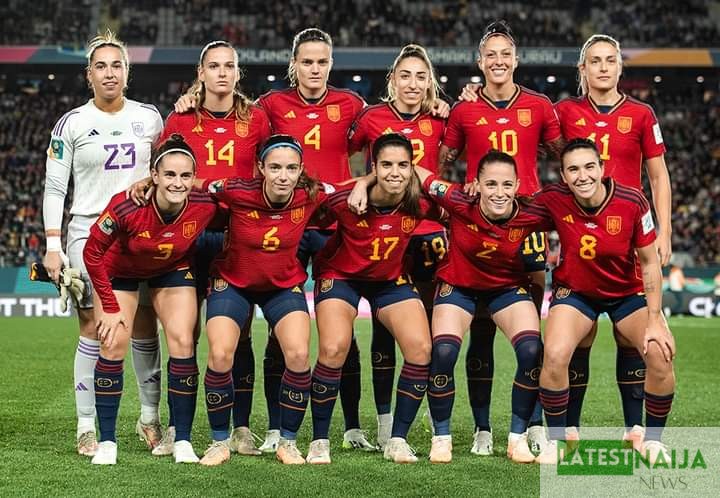
In a major development in the world of Spanish football, most of the country’s international footballers have agreed to rejoin the national squad, ending a strike that was prompted by the scandalous behavior of the disgraced former president of the Spanish football federation (RFEF). The announcement was made by the government on Wednesday, following several hours of intense negotiations between the players and the relevant authorities.
The strike, which saw 19 players from the squad of new coach Montse Tome refusing to participate, was triggered by the shocking incident in which former RFEF president Luis Rubiales forcibly kissed a player just moments after Spain won the World Cup on August 20. Rubiales subsequently resigned three weeks after the incident, and controversial coach Jorge Vilda was sacked. However, the players demanded broader structural changes within the RFEF.
Despite the strike, international players who had been selected by Coach Montse Tome reported for training, albeit with some expressing concerns over potential sanctions if they refused to play. Barcelona defender Mapi Leon voiced the sentiment shared by many, stating, “We have been forced to come. But if they want to sanction us, then we have to come.”
Goalkeeper Misa Rodriguez, when asked if she was happy to be included in the squad, simply replied, “no.”
Two-time Ballon d’Or winner Alexia Putellas, visibly upset, responded at Barcelona airport, saying, “Well, bad.”
In a joint statement issued by the striking players on Monday, they reiterated their wish not to be called up but acknowledged that legal consequences might force their attendance. Potential fines ranging from 3,000 to 30,000 euros ($3,200 to $32,100) and the risk of losing their licenses to play for up to five years loomed over the dissenting players.
Victor Francos, the secretary of state for sports and president of Spain’s High Council for Sports (CSD), assured that the two women who opted not to play would not face sanctions. He initially suggested applying the country’s sports law against any player who refused the call-up but later reversed his stance, meeting with the players to ask them to play and offering government assistance.
Francos stated, “You go (to play), and we commit ourselves so that what you are asking for can be possible.”
The scandal surrounding Rubiales’s actions and the subsequent strike have cast a shadow over Spanish football, with concerns that the nation’s participation in upcoming Nations League games was in jeopardy. However, with the players’ return to the squad, Spain is set to face Sweden on September 22 and Switzerland on September 26 in the Nations League, with the possibility of qualification for the 2024 Olympic Games at stake for the eventual finalists.
Notably, midfielder Filippa Angeldahl from the Swedish national team voiced support for the Spanish players, emphasizing the importance of their decisions and the need for solidarity among athletes. “They need to feel the support around them, that other countries support them in the decisions they make,” said Angeldahl.
Goalkeeper Hedvig Lindahl added her perspective, writing, “I don’t want to be part of encouraging people to chase a football dream if the game will not protect them while doing so.”
As Spain prepares to travel to Sweden for their upcoming match in Gothenburg, the footballing world watches closely, hoping for a resolution to the ongoing turmoil that has gripped Spanish football.


Comments are closed.